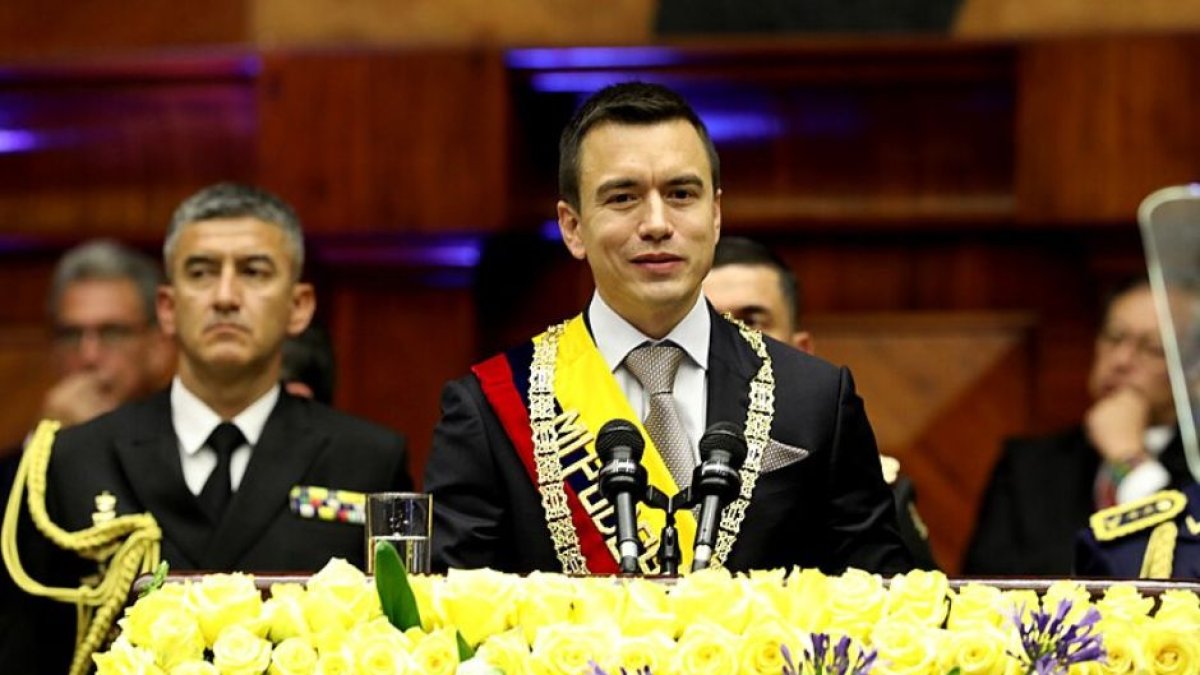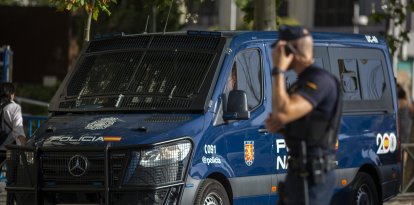Referendum in Ecuador: Measures to toughen the fight against organized crime proposed by President Noboa triumph
According to the exit polls, the president was only defeated in two of the eleven electoral propositions.

Wikimedia Commons
Ecuador went to the polls on Sunday for a referendum pushed by President Daniel Noboa to toughen the fight against organized crime. According to the official electoral results, the president's position was only defeated in two of the eleven electoral measures decided by the Ecuadorians.
According to the results of the company Infinity Estrategas, the flexibility of the labor market and allowing international arbitrations in any jurisdiction were the only questions that obtained more negative than positive votes, 65.6% and 69.6%, respectively.
The good news for Noboa is that the rest of the consultations, all aimed at strengthening the fight against organized crime, obtained support ranging between 60% and 70%. Indeed, the question with the most support proposes that the Armed Forces be able to permanently support the Police in this crusade without the need to issue states of exception.
The elections were not precisely calm since they included the murder of Cosme Parrales, who directed the El Rodeo prison. At the same time, an attempted mutiny occurred in the tropical province of Los Ríos.
In turn, 28% of voters were absent, which is considered high compared to previous elections in the South American country.
The 11 popular consultations of the elections in Ecuador
- Question A: "Do you agree with allowing the complementary support of the Armed Forces in the functions of the National Police to combat organized crime, partially reforming the Constitution?"
- Question B: "Do you agree with allowing the extradition of Ecuadorians, with the conditions, requirements, restrictions and impediments established in the Constitution, international instruments and in the law, amending the Constitution and reforming the laws, in accordance with Annex 1 ?"
- Question C: "Do you agree with the establishment of judiciaries specialized in constitutional matters, both in first and second instance, for the knowledge of the jurisdictional guarantees that correspond to them, amending the Constitution and reforming the Organic Law of Jurisdictional Guarantees and Constitutional Control, in accordance with Annex 2?"
- Question D: "Do you agree that the Ecuadorian State recognizes international arbitration as a method to resolve investment, contractual or commercial disputes?"
- Question E: "Do you agree with amending the Constitution of the Republic and reforming the Labor Code for the fixed-term and hourly employment contract, when it is concluded for the first time between the same employer and worker, without affecting the acquired rights of workers, in accordance with Annex 4?"
- Ask F: "Do you agree that the Armed Forces carry out control of weapons, ammunition, explosives and accessories, permanently, on the routes, paths, roads and corridors authorized for entry to social rehabilitation centers?"
- Question G: "Do you agree with increasing the penalties for the crimes of (i) terrorism and its financing, (ii) illicit production and trafficking of scheduled substances subject to control, (iii) organized crime, (iv) murder, (v) hitmen, (vi) human trafficking, (vii) kidnapping for ransom, (viii) arms trafficking, (ix) money laundering and (x) illicit activity of mining resources, reforming the Comprehensive Organic Penal Code in accordance the Annex to the question?"
- Question H: "Do you agree that people deprived of liberty serve their entire sentence within the social rehabilitation center for the crimes detailed in the Annex to the question, reforming the Comprehensive Organic Penal Code as stated in the referred Annex?"
- Question I: "Do you agree with criminalizing the crime of possession or carrying of weapons, ammunition or components that are for the exclusive use of the Armed Forces or the National Police, without affecting firearms permitted for civilian use? Reforming the Comprehensive Criminal Organic Code in accordance with the Annex to the question?
- Question J: "Do you agree that weapons, their parts, explosives, ammunition or accessories that were instruments or material objects of a crime can be used for the immediate use of the National Police or the Armed Forces, reforming the Code Comprehensive Criminal Organic Law according to the Annex to the question?"
- Question K: "Do you agree that the State proceeds to be the holder (owner) of assets of illicit or unjustified origin, simplifying the procedure of the Organic Law of Asset Forfeiture, in accordance with the Annex to the question?".

























